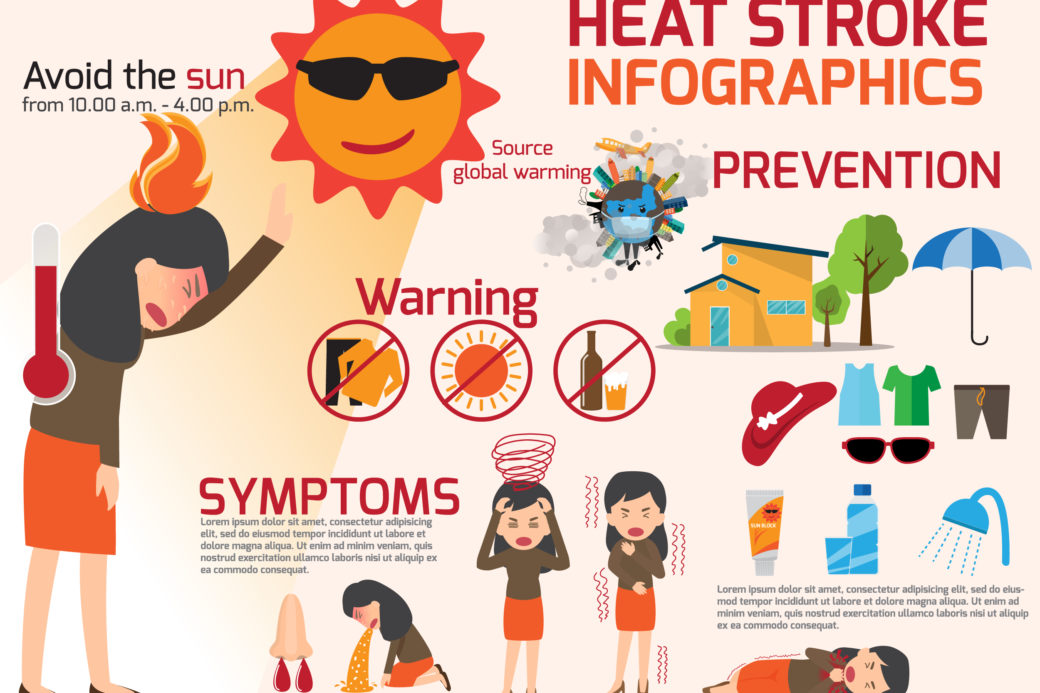Heat Exhaustion vs. Heat Stroke

Heat Exhaustion vs. Heat Stroke
Heat exhaustion and heat stroke can both be dangerous for your children. However, it is important to know the difference. Both can be caused by exercising or playing in a hot, humid environment which causes the body to become dehydrated. However, there are subtle differences that can reveal the severity and guide decisions on treatment.
Heat exhaustion can be accompanied by a fever under 104 degrees Fahrenheit, cool, clammy skin, muscle aches, excessive thirst, nausea, fainting, rapid or slow heartbeat, and dizziness.
Heatstroke generally develops following heat exhaustion if it has not been treated. This happens when the body temperature rises so much that the temperature regulation stops working completely. This can be life-threatening and is typically characterized by nausea, vomiting, hot, dry skin, dizziness, excessive fatigue, rapid heart rate and shortness of breath.
Either of these conditions require immediate medical attention, especially in someone young or old.
Leave a Comment